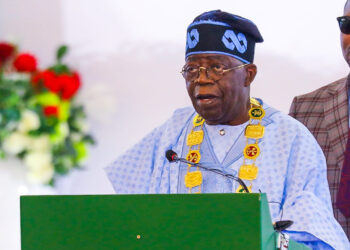The Federal Government’s oil revenue projection has plunged 57% from N1.92 trillion in 2015 to N820 billion in 2016, showing that the government is expecting to earn far less in 2016 than it did the previous year from oil exports.
The new budget proposal, delivered by the president, is based on a production assumption of 2.2 million b/d and a far lower benchmark price of $38/barrel.
Presenting the 2016 budget proposal of N6.08 trillion ($30.1 billion) to parliament, President Buhari said:
By June 2014, oil prices averaged $112 per barrel. But as at today, the price is under $39 per barrel. This huge decline is having a painful effect on our economy. Consumption has declined at all levels. In both the private and public sectors, employers have struggled to meet their salary and other employee related obligations. The small business owners and traders have been particularly hard hit by this state of affairs.
The sharp decline in oil earnings means the government would need to restructure the oil and gas sector, and check corruption and inefficiencies in order to gain maximum value from the oil sector.
But despite the plunge in oil receipts, government’s spending is going to be 26% higher than that of 2015. The government is increasing its spending to record levels in order to stimulate the economy. The President said:
This Budget proposal, the first by our Government, seeks to stimulate the economy, making it more competitive by focusing on infrastructural development; delivering inclusive growth; and prioritizing the welfare of Nigerians. We believe that this budget, while helping industry, commerce and investment to pick up, will as a matter of urgency, address the immediate problems of youth unemployment and the terrible living conditions of the extremely poor and vulnerable Nigerians.


















